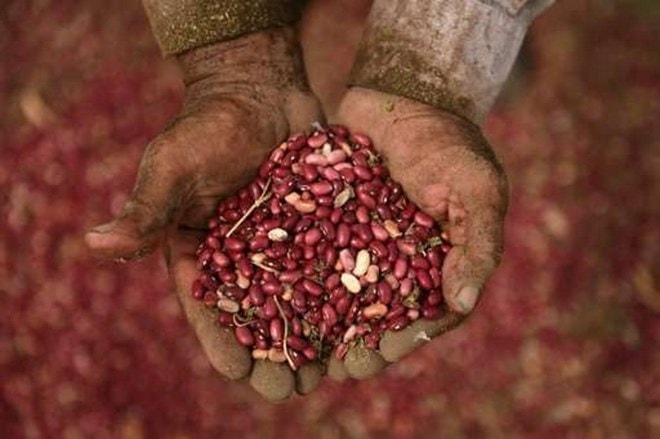Central American countries test drought-tolerant hybrid beans
Experts from Central and South American countries have researched and bred a bean variety that can withstand drought, thereby helping to improve crop quality for farmers.
With the help of El Salvador's National Center for Agricultural Technology (CENTA), researchers from El Salvador, Colombia and Honduras have bred a light red bean variety called CENTA-FAC. They tested the new bean variety in a village in El Salvador, with the participation of 14 farmers.
Farmers had a bumper crop of 0.7 hectares of beans harvested after the beans endured 15 days of drought and two storms.
 |
| (Source: phys.org) |
According to experts, this bean variety is not only highly drought tolerant but can also resist yellow mosaic disease in beans.
Researcher Aldemaro Clara, of CENTA, said the new bean variety was not created through genetic modification, but was a product of hybridization – a combination of naturally occurring plants to form a hybrid.
The CENTA-PAC bean variety is part of a decade-long effort by a series of laboratories in countries across the region to create hybrids that can survive and thrive during droughts.
Currently, laboratories are continuing to research new hybrid plant varieties that can withstand extreme weather events caused by climate change such as rising temperatures, prolonged droughts and heavy rains.
Central America has been hit by a prolonged drought this year, damaging crops in fields from Costa Rica to Guatemala.
The United Nations warns that due to severe water shortages, about 2.3 million farmers in Central American countries will need food aid.
According to Vietnam+
| RELATED NEWS |
|---|



